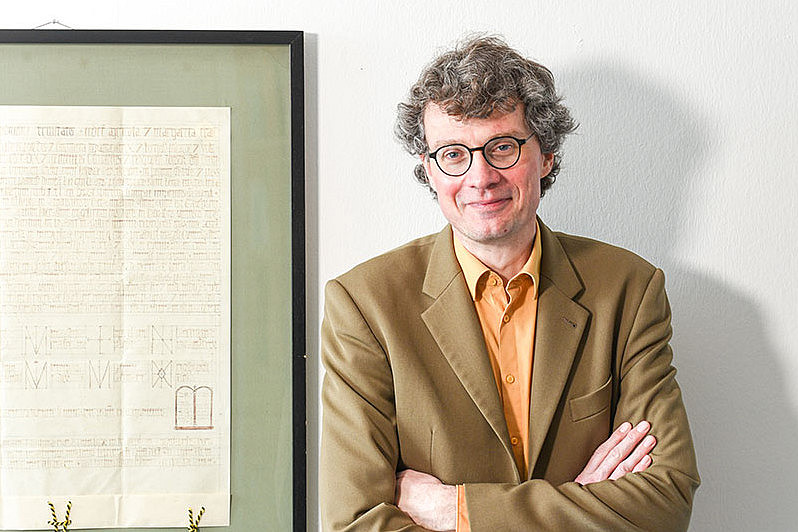Old documents can tell astonishingly modern stories: “They might describe religious differences within families, for instance, or people helping fugitives, as well as robber barons and heroic deeds,” explains Georg Vogeler. As historian and head of the Austrian Centre for Digital Humanities at the University of Graz, he has been awarded an ERC Advanced Grant for his research, with funding of almost three million euros – one of the highest levels of subsidy available from the European Union. He will use the funding to develop an artificial intelligence system to improve the way digitalised historical documents are searched and researched, and to reconstruct their uses and purposes. There are already around 600,000 such stored documents available through the online portal at www.monasterium.net. “Established methods are no longer adequate for analysing the huge volume of documents produced since the 13th century in Europe, and to reveal the history and stories hidden within them,” continues Vogeler.
The EU-funded project DiDip – “From digital to distant diplomatics” – is now creating a virtual research environment for collaboration between people and machines. “The computer programme can search a huge set of records to learn and gather information. To interpret this, however, human creativity and perception are essential,” says the expert in digital humanities, describing the work they will do. He anticipates that this “collaboration” with artificial intelligence will provide new insights into pan-European developments, trends and upheavals, not least – and highly topical in the context of the pandemic – about the Great Plague of 1348/49 and the subsequent economic crisis.
With the first research centre in digital humanities, the first professorship and the first degree programme in Austria, the University of Graz is one of the country’s leading institutions in this discipline. The Centre’s work is highly regarded in the international community: late last year, Vogeler’s colleague Leif Scheuermann was also awarded an ERC grant.
